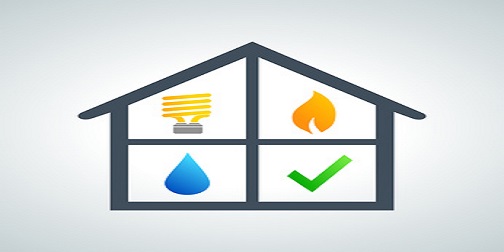Getting tenants to pay for utilities can be a major source of frustration for many landlords. When tenants fail to pay utility bills, it can cost the owner money in both unpaid bills and fines. Oftentimes you can include these unpaid utility fees in a notice to pay rent or quit. However, sometimes a more thorough course of action must be taken. Here are a few tips for landlords to help you navigate through potential faulty utility bill fiascos with tenants.
Can Landlords Serve a Notice for Utilities?
As of right now, for properties in the Henderson or North Las Vegas Jurisdiction, landlords are still allowed to put utilities on a 5-day pay or quit notice. For Las Vegas jurisdictions, however, landlords are not allowed to put utilities on a notice. This means that if your property is located in Las Vegas, you can’t evict the tenant for the money they owe you for utilities. This remains true even if the tenant was supposed to put the utilities in their name, and even if the lease stipulates that the tenant is responsible for utilities; the Las Vegas Justice Court will still not allow it on a notice. Additionally, once the tenant has been living in the property, the landlord is not allowed to turn the utilities off without repercussions, even if the tenant refuses to pay for said utilities.
Do NOT Turn off those Utilities
As we briefly mentioned above, you cannot shut off utilities once a tenant has been living in the rental unit for a ‘reasonable’ amount of time, regardless of if they’re paying you for them or not. Having the utilities turned off is considered denying the tenant an essential service and could lead to an extremely hefty fine for the landlord. If that wasn’t bad enough, the person who would receive that fine money would be, you guessed it, your tenant! The best route to take is to consult an experienced eviction services company about ways to protect yourself from racking up huge unpaid (by the tenant) utility bills.
Landlord Options for Charging Tenants for Utilities
One option landlords can explore is keeping the utilities in their name and then charging the tenant a flat monthly fee. Taking this route is a perfectly viable solution, however, when doing so it is important to clearly stipulate that utilities are included in the monthly rent amount. If you require the tenant to put the utilities in their name, make sure that part of the lease agreement is signed by the tenant.
It’s important to clearly state in the lease agreement that the tenant has to have the utilities turned on in their name on or before a certain date. Once you have that specific date outlined in the lease agreement, you can then schedule the utilities to be turned off on that date (according to your lease) so it doesn’t become an issue later down the road. If the tenant then fails to have the utilities turned on under their name, it then becomes their problem and could potentially result in a lease breech. Depending on the circumstances, it may even be considered a Nuisance.
What if Utilities Pay is Not Stipulated in the Lease?
If the lease has already been created and signed without this stipulation, or if there is no lease, there are a few things you can do to try to recover your utility charges, or at least get the tenant out of your property.
One thing a landlord can do is to write the tenant a simple letter, whether by e-mail or mail. This letter should be dated, include the tenant’s name and address, and should clearly state that any monies the landlord receives from this date forward will be applied towards any outstanding utility fees first, then the rent. It is important that your tenant receives this letter before they pay you any money that you allocate toward utilities on your own. This way, the tenant has a choice whether to pay you and not have it count towards rent, or to choose to not pay entirely. Either way, unless they pay you the full amount of money owed, they still owe rent and can be evicted for non-payment of rent. If this happens to result in a hearing, a ruling decision will be made by a Hearing Master, at which time you can explain to the Hearing Master the severity of the utility bills and money owed to you, as well as the fact that you notified the tenant via a letter prior to this hearing.
Additional Steps Landlords Can Take
Another step landlords can take in an attempt to try to recover money owed by a tenant during an eviction is to pursue a Formal Eviction instead of a Summary Eviction. A Formal Eviction requires hiring an attorney and generally takes a bit longer. In addition to getting your property back, this route also provides the potential to get you a Judgment. However, a judgement does very little if the tenant does not have the money to pay you.
If all else fails, landlords can attempt to recoup their losses by suing the tenant in Small Claims Court. The maximum amount you can sue for in Small Claims Court is $10,000, except that a plaintiff may not file a claim over $2,500 more than twice a year. If the amount is under $2,500, you may get a Judgment against the tenant and not worry about the amount or how many times you are allowed to take someone to Small Claims Court for that year. Again, this route does not help should a tenant not have the money to pay you.
